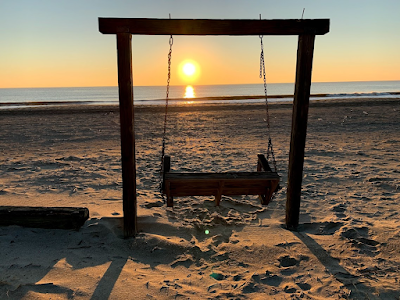What I Learned from College Was Worth More Than ROI on Tuition
What I Learned from College Was Worth More Than ROI on Tuition
I got stuck this morning on a column by George Will in The Washington Post, "Too Many College Students."
The point of his article is that we have too many college students and not enough skilled tradespeople. He posts stats about how much time students spend learning, and that 750000 industrial jobs can’t be filled.
There is also a Baron’s article from last year that highlights Is College Worth Going Into Debt? Only 1 in 5 Americans Say Yes.
I believe they have totally missed the boat!
When I went to college in the 1980s, I didn’t start college because I wanted to get the best job opportunity.
In fact, I don’t remember choosing to go to college; it was expected of me.
Was taking English, Literature, and the history of theatre preparing me for a good job in Tech?
Is being able to write, being curious to read, and to think about the importance of the arts and creativity help my creative mind as much as courses in Cobol and Fortran, or business courses in accounting and marketing?
It certainly helps in this era of AI and Large LANGUAGE models to write the best prompts and review results for value, analysis, and accuracy.
Did combining liberal arts classes with business and programming classes provide a good return on the tuition? It enabled me to be more thoughtful, more curious, and better able to adapt to life's changes.
Did getting good grades and studying hard help me get a good job at IBM? Most likely, but so did internships, co-oping, and other non-college activities.
Did non-school activities and studies help my career? You bet they did. Joining a fraternity helped me build social skills. It also helped me understand how to get along and live with people of different upbringings, personalities, and belief systems. I remember the feeling at the Fraternity house at UGA; That at 2 AM it was easy to talk to anyone.
If I am right, we are focused on the wrong values for college.
What I gained from a liberal arts college:
-
The ability to be open to learning new subjects and information.
-
The ability to write, read, and comprehend.
-
The need to debate, consider choices and options, and view different points of view.
-
The importance of continuing to learn, even after school.
-
The importance of community and diversity of thoughts.
-
The Importance of Curiosity and Asking Questions.
So, let’s get back to George Will’s hypothesis. We need fewer college students and more trained tradespeople.
Would tradesmen and tradeswomen not gain from these benefits?
If we focused on how a college education will improve our lives and our knowledge, we would have a society eager to learn and adapt to new opportunities and challenges.
We would have happier young people whether they become the scientist who cures cancer, an electrician to fix the panel in our house, or the lucky repairman who is going to repair our washing machine tomorrow.
The point is that the benefits of college extend beyond potential income.
If the focus were on these benefits, more students might choose local community colleges or smaller schools over those with greater notoriety. It would also be more cost-effective, and students would graduate with significantly less debt.
In fact, President Obama may have been right in 2015, when he proposed making Community College free, “because in America, a quality education cannot be a privilege that is reserved for a few. I think it’s a right for everybody who’s willing to work for it.” This was 2015, and Tennessee had and still has a program called the Tennessee Promise Program that pays for the first two years of Community College.
Education can’t be one of those items on a personal list that has an ROI. The true return on education is measured not in salary charts, but in the resilience, adaptability, and curiosity it fosters.
That is the dividend I continue to see decades later, one that pays far more than any job title or paycheck. And that is why we should stop reducing education to a spreadsheet calculation and start valuing it for the lifelong growth it creates.




Comments